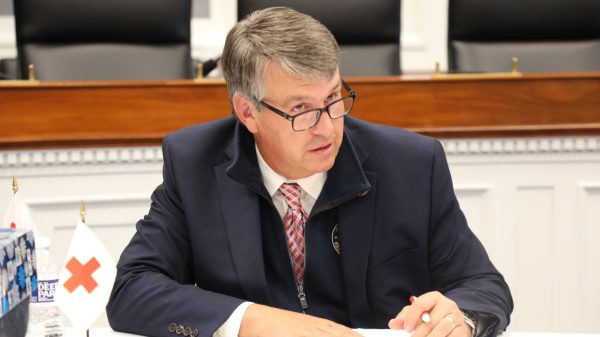By Josh Moon
Alabama Political Reporter
Attorneys for former Gov. Robert Bentley, his top aide, Rebekah Mason, and Alabama Law Enforcement Agency officials asked a Montgomery Circuit Court judge to dismiss a wrongful termination lawsuit filed by former ALEA director Spencer Collier.
After listening to about an hour of arguments from five different attorneys, Judge Greg Griffin said he will rule on the motion by noon Friday.
“I certainly don’t believe it should be dismissed and that we have a strong case,” Collier’s attorney, Kenny Mendelsohn said afterwards. “We’ll have to wait and see, but I feel pretty good about it.”
For most of the hour, Bentley’s attorneys — John Neiman and Mark Foley — along with attorneys for Mason and ALEA attorney Michael Robinson, argued that Collier’s complaint should be tossed because most of the alleged improper acts occurred while their clients were performing the duties of their public jobs. Because of that, the attorneys said, their clients enjoyed a certain level of immunity from being forced to pay monetary damages.
Collier was fired by Bentley during the midst of the tumultuous final few months of Bentley’s tenure as Alabama’s governor. Collier has claimed that he was fired by Bentley for refusing to lie for the governor to the attorney general and for disobeying Bentley’s order not to produce an affidavit in the Mike Hubbard prosecution.
Following his termination, Collier went public with allegations that Bentley carried on an extramarital affair with Mason, who was then serving as the governor’s top advisor. Text messages and phone recordings later released as part of an impeachment investigation mostly confirmed Collier’s allegations.
Mendelsohn said on Monday that even after his termination, Collier continued to be investigated by ALEA at Bentley’s order and that numerous false allegations effectively prevented Collier from working.
“He had to use his retirement, filed for bankruptcy — this was not a pleasant time for Spencer Collier,” Mendelsohn said.
For those reasons, Mendelsohn told Griffin, he believes established case law — which denies immunity when a constitutional officer acts illegally or with bad intentions — proves Bentley and the others involved in the conspiracy against Collier do not warrant immunity.
“If a governor can do this sort of thing because he’s unhappy with someone, where does it stop?” Mendelsohn asked.
To illustrate Bentley’s mindset at the time, Mendelsohn said an ALEA investigator would testify under oath that she was encouraged to trump up allegations against Collier. Mendelsohn said Bentley and others falsely claimed that Collier was having an affair and had an illegitimate child. He also said investigators dug through Collier’s prescription drug history looking for evidence of an addiction.
Mendelsohn also said Bentley asked Collier to investigate his then wife, Diane Bentley, and her assistant, Heather Hannah, over recordings made of Bentley’s phone conversations with Mason. Mendelsohn said the governor wanted Collier to arrest his wife and Hannah for “wiretapping.”
Bentley’s attorneys responded by noting that Collier worked at the pleasure of the governor, and no matter the reason, Bentley had the authority to fire Collier at any time.



















































